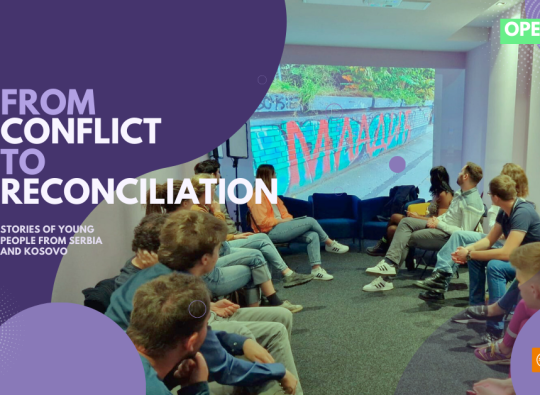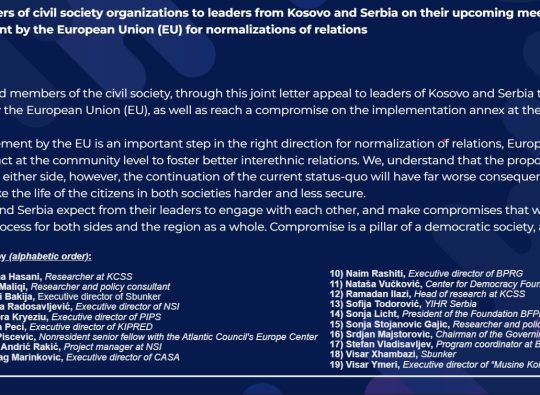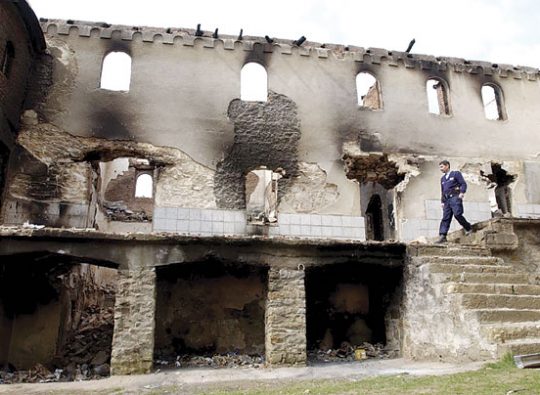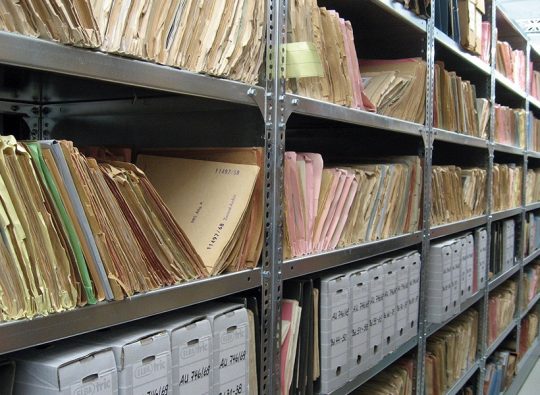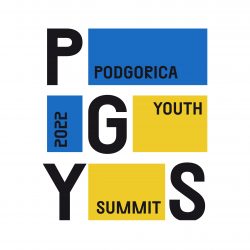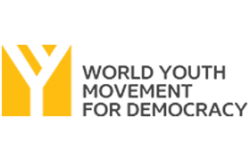According to the Humanitarian Law Center (HLC), 23 people lost their lives in the March violence in Kosovo: Macedonian Jana Tucev, nine Serbs – Dragan Nedeljković, Slobodan Perić, Dusanka Petković, Borivoje Spasojević, Borko Stolić, Dobrivoje Stolić, Slobodan Tanjić, Zlatibor Trajković and Nenad Vesić, and thirteen Albanians – Fatmir Abdullahu, Ferid Çitaku, Bujar Elshani, Kastriot Elshani, Isak Ibrahimi, Alumuhamet Murseli, Agron Ramadani, Nexhat Rrahmani, Arben Shala, Gazmend Shala, Ajvaz Shatrolli, Esat Tahiraj and one Albanian from Prishtinë whose name HLC has not been able to identify.
At that time, about 170 Serbs were injured, 150 of them were beaten in their homes, while 20 of them were injured in attacks on the roads. As for the buildings, about 800 Serb, 90 Ashkali and two Albanian houses were either completely destroyed or severely damaged. In addition to civilian properties, 36 Orthodox Churches were completely demolished and burned. According to the UN Secretary-General, 954 people were injured during the March violence, including 65 international police officers, 58 members of the KPS and 61 members of the international peacekeeping force.
The OSCE report on the assessment of the rights of communities in June 2021 states that, as of December 2019, 28,302 displaced persons have returned to Kosovo since 2000, and that the return rate has decreased every year and that this trend continues to decline. UNHCR also estimates that there are 16,151 displaced persons in Kosovo, of which 412 live in one of the temporary collective shelters.
For more than two decades, commemorations and victims have been misused for the spread of states’ propaganda and national political gain. This current behavior of the governments is fuelling ethnic tensions, creating even stronger barriers for the process of reconciliation.
The discrimination of the Serb community in Kosovo is being spread through violent attacks by the members of the Special Unit of the Kosovo Police, as it recently happened in Leposavić, and through the process of land expropriation. In Serbia, on the other hand, discriminatory language is used by some of the highest state representatives including President Vučić who stated in the National Parliament of Serbia that all Albanian political prisoners during the Milošević regime are “terrorists,” as well as, discriminatory practices are being implemented through address passivization of the Albanian community in Serbia.
Therefore, we demand from the Government of Kosovo to unequivocally condemn ethnically motivated attacks directed towards Kosovo-Serbs, while ensuring internally displaced people and refugees a safe return to their homes. We call on the Government of Serbia to end discriminatory practices, such as the address passivization of the Albanian community in Serbia, to stop instigating hate towards Albanians, particularly on dates such as March 17, and to publicly apologize for not preventing violence aimed at destroying the property of Albanians, Bosniaks and Turks in Serbia and setting fire to mosques in Belgrade and Niš.

